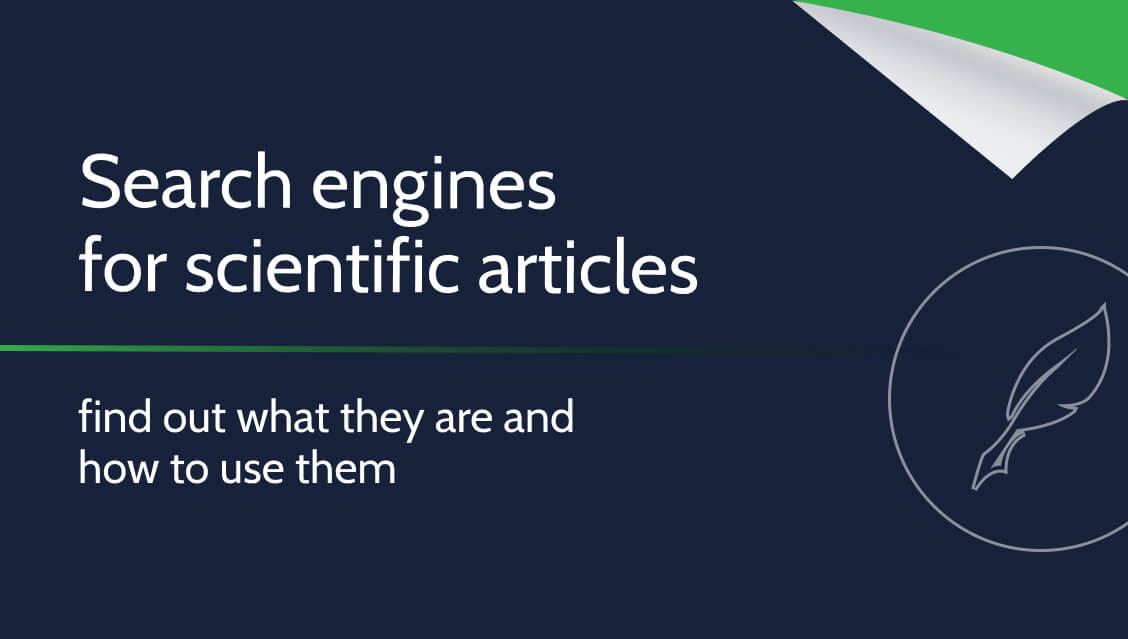Search engines for scientific articles – find out what they are and how to use them

Do you need trustworthy sources for your scientific content? The article on search engine for scientific works will help you find reliable information and publications in various fields. From psychology to electronics – selected websites are multidisciplinary sources of knowledge for every student, researcher and doctoral student. However, some people ask themselves the question – where to find professional literature? Find out what search engines for scientific works are and how to use them!
What are scientific search engines?
Scientific search engines are internet tools that allow you to search various databases containing scientific articles, reports, papers and other scientific publications.
These search engines enable users to quickly and effectively find particular scientific articles by filtering and sorting the results.
Search engines for scientific articles are an extremely valuable source of information for researchers and students looking for information in various fields. Those interested in a specific discipline should, however, turn their attention towards a site dedicated to a single specialty.
How to use search engines for scientific articles
Pick the appropriate search engine first. Inappropriate usage of regular search engines on the internet could lead to less useful results that don’t address the topic of interest.
A significant proportion of sites are multidisciplinary. Therefore, you will find articles from numerous fields, such as psychology, biology and medicine. However, some search engines are dedicated to a specific branch of science.
For the best search results, make sure to choose the right keywords. A comma placed in the right place can sometimes result in displaying different articles. The first pages usually contain the publications best suited to your needs.
The most popular search engines for scientific articles are:
- Google Scholar,
- ResearchGate,
- ScienceDirect,
- Scopus,
- PubMed.
Google Scholar
Launched in 2004, Google Scholar is the most widely used and free internet search engine for scientific literature.
The website provides access to abstracts and full texts of publications, meta-analyses, summaries, doctoral theses and other scientific sources. Google Scholar is a multidisciplinary search engine. Despite this, it is a source of knowledge mainly for people interested in the social sciences and humanities.
One of the most important advantages of Google Scholar is the indexing algorithm that allows you to find hundreds of thousands of scientific articles from around the world. The site also offers filtering results by such criteria as the number of citations, publication date, author and journal.
ResearchGate
ResearchGate is a social platform for publishing, sharing and viewing scientific publications.
Thousands of publications, books and downloadable materials can be found on this site. One of the biggest advantages of ResearchGate is the possibility to establish contacts with other scientists in similar fields, which greatly facilitates cooperation and information exchange. The platform also allows you to publish drafts of articles to get feedback and suggestions from other users.
ScienceDirect and Scopus
ScienceDirect and Scopus are two popular search engines for science articles. Both tools offer access to a rich database of scientific articles, but they differ in several key aspects.
ScienceDirect is a publication search engine provided by Elsevier. The database contains over 16 million scientific articles from over 3,800 scientific journals and 35,000 books. Scopus, on the other hand, is made up of over 70 million scientific articles from over 23,000 scientific journals, 100,000 books and 6 million conferences.
Both sites are provided by Elsevier. What are the differences between the listed search engines? Science Direct is a publishing search engine where journals list complete scientific articles. Scopus, on the other hand, is an indexing site that only contains abstracts.
PubMed
PubMed is a scientific publications search engine that gives you access to the huge medical database of the US National Library of Medicine.
The purpose of the site is to find publications on medicine, public health and related sciences. Search in PubMed is based on the MeSH (Medical Subject Headings) indexing algorithm, which allows for precise determination of key words and thematic categories.
How to analyze scientific articles?
First, read the abstract, i.e. a summary of the article. There you will find key information about the study, such as purpose, methods, results and conclusions. Reading the abstract will allow you to assess whether the article is relevant to your topic. Pay attention to graphics and graphs – they often show important research results in scientific articles. A quick review of these elements will allow you to assess the importance of the article.
Pay attention to the graphics and graphs showing the most important results of the study in pictorial form. In the last part of the cursory analysis of the publication, read the conclusions. This excerpt is considered the most important element of the article and summarizes the results of the study.
Summary
- Scientific search engines are tools that allow you to search databases containing scientific articles, reports, papers and other publications.
- Google Scholar, ResearchGate, ScienceDirect, Scopus, and PubMed are the top search engines for scientific literatures.
- The most widely used and most widely used internet search engine for scientific literature is Google Scholar.
- You can connect with other researchers on ResearchGate, which considerably enhances collaboration and knowledge sharing.
- You can search the extensive medical database of the US National Library of Medicine using the search engine PubMed.


















Leave a Reply